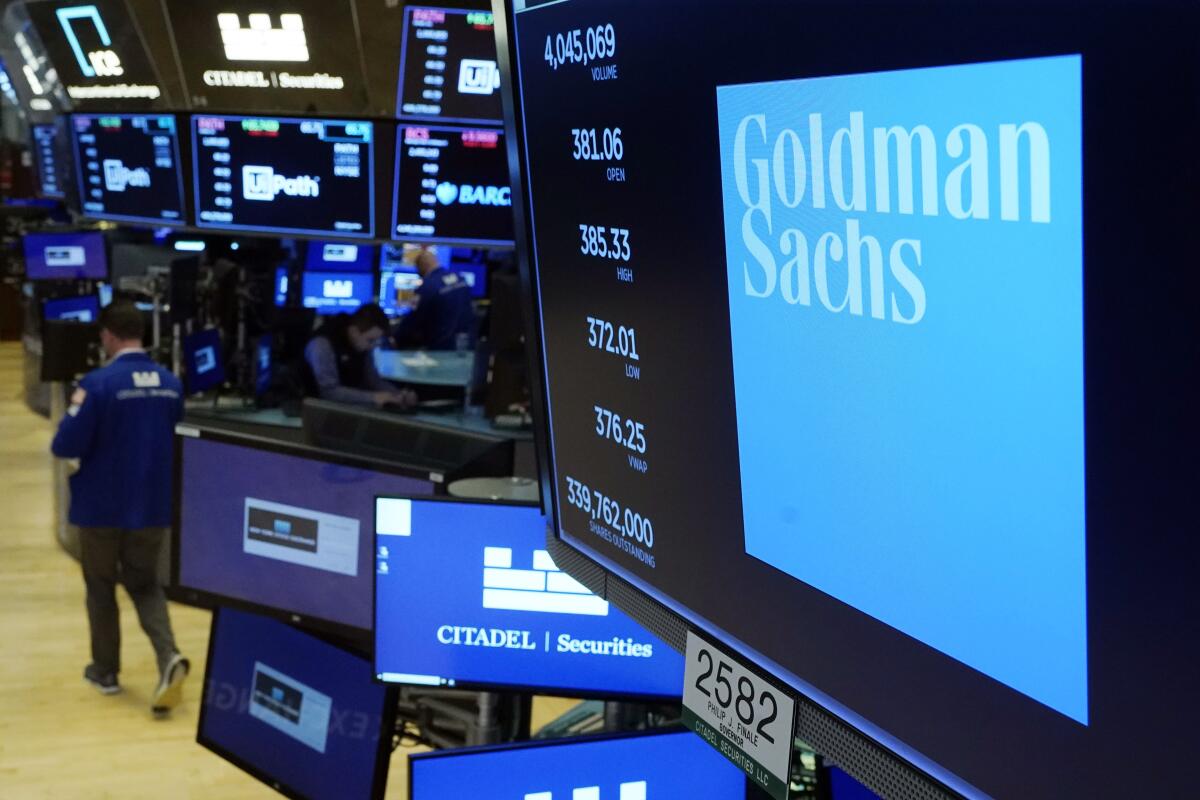Goldman Sachs settles gender discrimination lawsuit for $215 million

- Share via
NEW YORK — Goldman Sachs will pay $215 million to settle a years-long class-action lawsuit that claimed the bank discriminated against women when it came to pay, performance evaluations and promotions.
The lawsuit, initially filed in September 2010, was set to go to trial next month. The plaintiffs in the case are women who worked for Goldman as an associate or vice president in the U.S. in the investment banking, investment management or securities divisions.
The settlement covers about 2,800 female associates and vice presidents in Goldman’s investment banking, investment management and securities divisions.
“My goal in this case has always been to support strong women on Wall Street. I am proud that the result we achieved here will advance gender equity,” plaintiff Allison Gamba said in a prepared statement.
Conservative legal group Judicial Watch challenged the law’s validity under the state Constitution’s equal protection clause.
Aside from the payment, the settlement includes a three-year period during which Goldman will work with an independent expert to reassess its performance evaluation processes, as well as its process for promoting individuals from vice president to managing director. It also requires an independent expert to conduct additional pay equity studies and for the New York-based company to investigate and address any gender pay gaps where appropriate.
“Goldman Sachs is proud of its long record of promoting and advancing women and remains committed to ensuring a diverse and inclusive workplace for all our people. After more than a decade of vigorous litigation, both parties have agreed to resolve this matter,” said Jacqueline Arthur, Goldman Sachs’ global head of human capital management. “We will continue to focus on our people, our clients, and our business.”
More to Read
Inside the business of entertainment
The Wide Shot brings you news, analysis and insights on everything from streaming wars to production — and what it all means for the future.
You may occasionally receive promotional content from the Los Angeles Times.











